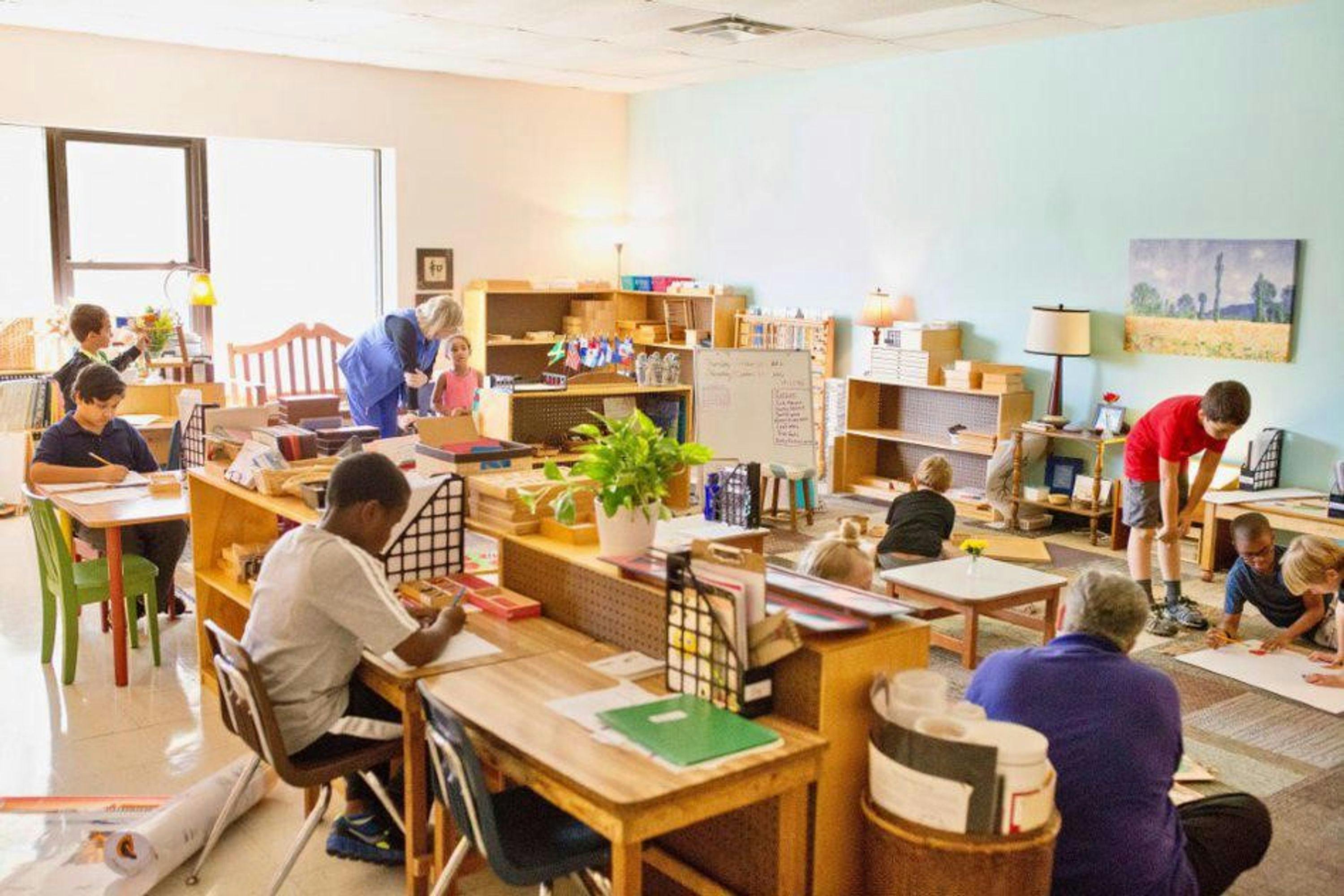Stay the Course for Elementary: Montessori is not just for Early Childhood
There is a common misconception that Montessori just for early childhood? Today, we dispel this myth and discuss why Montessori can benefit older children
Kelli Harran
Director of Program Support
Is Montessori just for early childhood? Actually, no, this is a common misconception.
Montessori continues into elementary and beyond. There is so much more Montessori can offer the older child that builds on the excellent preparation your child has received in the Children’s House. If you are still becoming acquainted with Montessori, you may not have realized that the Montessori method and programs extend into adolescence.
Some families intentionally seek a Montessori school because they are aware of the benefits for young children, but they may not be as familiar with what comes afterward. Others may stumble into Montessori while searching for quality childcare or a preschool program to meet the needs of their current circumstances.
Whatever your path to Montessori, new and veteran Montessori parents often fall in love with the approach when they see their child growing in capability and confidence. When your child is thriving socially, emotionally, and academically, you feel assured you have found the right place.
Choosing Montessori Elementary
The kindergarten year is equivalent to the final year of Children’s House. It is naturally a time when parents begin to shift their attention to what comes next. As your child approaches elementary, it is worth acknowledging that the decision about where to send your child to school is significant. Finding a good fit for your family and child are paramount because elementary is a time when academic skills are solidified. Discover the value of Montessori for elementary!
“Real World” Preparation
Parents who loved the safety and security of Montessori for their young child sometimes wonder if it will adequately prepare their older child for the rigors of middle school, college prep, testing, and the “real world.” The good news is that Montessori does all of that exceptionally well. It not only meets those challenges, but Montessori elementary programs typically exceed them!
Montessori offers elementary children a profoundly rich academic experience, while also fostering the development of an array of life skills that are not inherent in traditional learning models. These are just a few of the ways in which Montessori elementary serves children:
- By nurturing their blossoming intellect,
- By providing outlets for creative exploration,
- By supporting learning through hands-on materials,
- By forming a strong bond of trust with learners,
- By offering opportunities for developing initiative,
- By encouraging the pursuit of individual interests,
- By supplying project-based learning experiences,
- By supporting social and emotional development,
- By honing time management skills,
- By cultivating grace and courtesy,
- By extending the freedom to excel and be self-paced,
- By developing critical thinking skills, and
- By managing multiple projects.
Montessori is about preparation for life, not just academic skills. Don’t mistake that for being light on academics. The curriculum is deep, interdisciplinary, sequential, and challenging in real-life ways. It does this while also preserving a love of learning that is too often quelled by the endless assignments, rote memorization, mounds of homework, and excessive testing associated with conventional schooling. It also guides the development of soft skills, practical know-how, emotional intelligence, and executive functioning.
Executive Functioning
Montessori activities build concentration that increases at each level. When your child is a baby, her attention span may only last moments. In Montessori Toddler programs, children’s attention spans grow up to an hour. In Children’s House, a child may work on something for a morning (sometimes even a day or week!). By elementary, children are engaged in projects that take weeks or months to complete and often involve collaborators. They must track their own work in elementary and set goals — all critical to the development of executive functioning.
Executive functioning skills allow people to concentrate, juggle and prioritize tasks, stay organized, regulate impulses, be flexible, plan ahead, and turn goals into achievements. There is a tremendous body of research on its importance in childhood and its link to success in adulthood. Montessori builds these skills intentionally, and the difference shows.
Kelli Harran
Kelli Harran is the Director of Program Support at Higher Ground Education.
Sign up for our newsletter
Get started with our community today! Sign up for resources.
